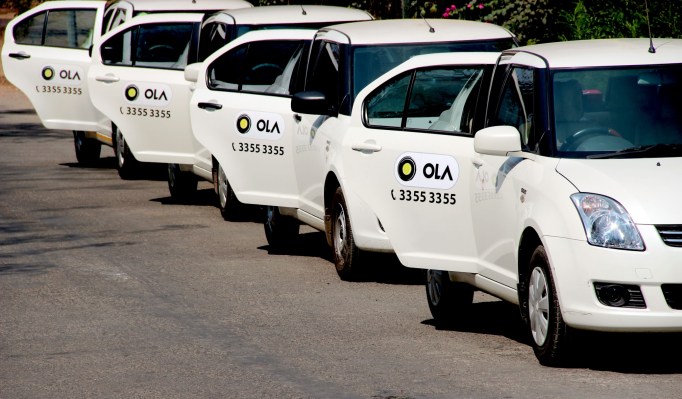Ola, the taxi-calling app that is Uber’s biggest competitor in India, has raised $315 million in new funding from DST Global, as well as returning investors Tiger Global, Steadview Capital, and Accel Partners.
Update: A source close to Ola told TechCrunch that this new money is part of a larger funding round that Ola is close to completing. Ola declined to comment in response to this.
The new capital was disclosed in a filing with the Ministry of Corporate Affairs’ Registrar of Companies obtained by research firm Tofler and brings the total Ola has raised so far to about $592 million. The company declined to comment.
Ola’s previous round, when it raised $210 million led by SoftBank in October, took its valuation to $1 billion. It’s unclear what that figure is now that Ola has more than doubled its total funding.
After SoftBank’s investment, the company spent $200 million to buy smaller rival TaxiForSure. The acquisition helped Ola signficantly expand its presence. Back in January, Ola operated in 50 cities, up from just 19 in October 2014. Now that number has jumped to more than 80 cities. Ola has told TechCrunch it plans to reach 200 by the end of this year.
Along with offering several classes of taxis, Ola has also been dabbling in logistics with services like Ola Cafe, which is similar to Uber Fresh in the U.S. and shuttles food orders to customers in Bangalore, Hyderabad, Delhi, and Mumbai within 20 minutes.
Much of Ola’s funds, however, have been used to keep up with Uber in an ongoing price war among taxi-calling apps, with each offering low fares (and in some cases, free rides) in an effort to attract customers and cement user loyalty.
Both companies are also dealing with regulatory issues, with the New Delhi government ordering them to obtain taxi licenses. This requires each to operate like a traditional taxi company by maintaining a fleet of cars and a 24/7 call center instead of just relying on its tech infrastructure and apps.
This business model is pricier but may help cab-hailing apps gain more consumer confidence following the sexual assault of a female passenger by an Uber driver last year, which raised significant safety concerns.
